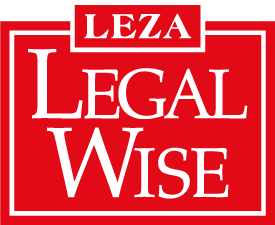Motor Vehicle Accidents
What must a person do after a motor vehicle accident (“accident”)?
The driver of a vehicle on a public road which is involved in or contributes to an accident in which any person is killed or injured or suffers damage in respect of any property or animal shall:
- Immediately stop the vehicle;
- Ascertain the nature and extent of any injury sustained by any person;
- Render such assistance to any injured person as he or she may be capable of rendering; and
- Ascertain the nature and extent of any damage sustained.
- It is imperative to write down all the necessary details of the other person involved in the accident. You need their name, address, telephone number and email address, so that they can be contacted by you or your insurance company.
- Other important particulars include ID number, driving license number, vehicle registration number, as well as the make and colour of the car.
- Note down important details such as time of the accident, location and the number of passengers and/or people involved in the crash.
- Take as many pictures of damage to your and other vehicles as possible. Should the other party make a false claim of any other damage to their car that was not caused by the accident in question, the images might serve as proof against a claim.
- Report the accident within 24 hours after the occurrence of the accident at any police station or at the office of a traffic officer.
What must a person NOT do after accident?
- A vehicle which is involved in an accident in which any person is killed or injured shall not be removed by any person from the position in which it came to rest, except if such removal is authorised by a traffic officer.
- But, if the accident causes a complete obstruction of the roadway, such vehicle may without such authorization be moved sufficiently to allow the passage of traffic, providing the person moving the vehicle ensures that the stationary position of the vehicle is first clearly marked on the surface of the roadway before it is moved.
- Do not leave the accident scene until all contact, personal and vehicle details have been noted.
What is the Motor Vehicle Accident Fund (MVA Fund) about?
- The fund was born with the aim of providing compensation in the form of benefits (Medical Care and Rehabilitation, Loss of Income, Loss Of Support Funeral Expenses, Incidental Expenses, Enhancement of quality of life) to road accident victims, provide third party insurance cover to drivers and owners of motor vehicles, promote road safety and accident prevention and deal with all matters relating to the carrying out all of the above.
Who can claim from the MVA Fund?
- Any person injured in a road crash within the borders of Botswana is eligible to be covered up to a maximum of P1,000,000.00 in benefits as defined in the MVA Fund Act of 2007. However, a negligent party’s claim is limited to P 300,000.00 and only to the extent of Medical Treatment and Rehabilitation.
- If you are a non-citizen and you are injured in a road accident during your visit to Botswana, subject to the provisions of the Act, MVA Fund only covers treatment and rehabilitation costs while you are in Botswana, it is therefore not a replacement for travel insurance and does not cover illness, disrupted travel plans or emergency travel to get you back home.
Can a person claim damages to his/her motor vehicle from the Motor Vehicle Accident Fund (“MVA”)?
- No, the MVA fund does not cover damages to a person’s personal property.
- If a person wants to claim for his damaged property, he will have to institute a claim in a civil court against the driver of the motor vehicle or his employer if he was driving a company motor vehicle.
When can a person claim from the MVA fund?
- Within three years of the date of accident. (This is in accordance with the new MVA Fund Act of 2007).
- Prescription is not applicable to minors and persons suffering from mental disorders.
GLOSSARY
Accident Report: is an official document containing all the details of the accident drawn up by a police office or authorised traffic officer.
Negligent: means the failure to take reasonable care, for example, reckless driving.
Witness: is a person who sees or hears something relevant to the criminal offence before court.
How can LegalWise assist you?
Should you require an explanation of your rights on this topic, please contact your nearest LegalWise Branch, call, e-mail or WhatsApp us. For more information about our membership options visit our legal services page or visit our join now page.
